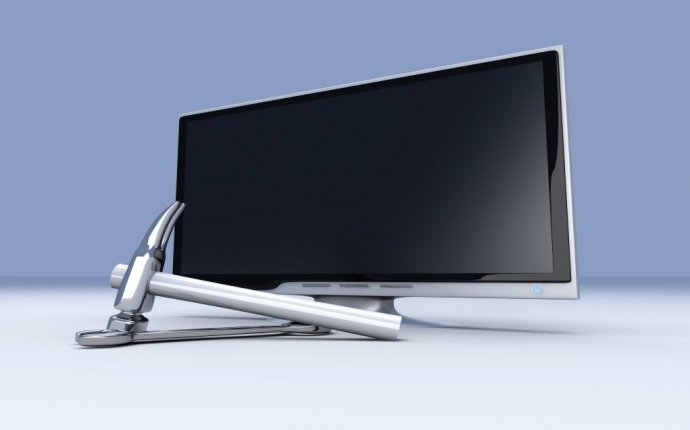
Best Computer repair software
 OB Roundup
OB Roundup
Tune Up Your PC
Fast startup times and speedy operations are among the greatest joys of working and playing on a brand-new PC. After all, we all want our PCs to run at peak capacity, regardless of whether it is a budget laptop or a polygon-pushing gaming desktop. But, inevitably, that out-of-the-box performance fades away. Eventually, every PC will slow down, either gradually or suddenly. That's when tune-up utilities prove their worth.
All computers eventually lose that day-one luster, becoming lethargic, unresponsive, and even unreliable. The operating system gets gunked up as apps are added and incompletely deleted, leaving behind drivers and all sorts of other system detritus. Their hard drives fill up with forgotten files we've abandoned in folders whose existence we've forgotten. Programs build up enormous caches behind the scenes that we don't even know about. Eventually, our full hard drives choke the OS as it tries to run. Outdated drivers cease to work correctly. Toolbars and other nasty plug-ins can precipitously slow our browsers to a crawl. It doesn't matter how diligent you are, or what sort of productivity software you use to get the most out of your time if end up sitting around and waiting for your computer to catch up to you.
When our machines become so impaired through use and neglect that we can no longer use Microsoft Word or play PC games with the same speed and efficiency to which we have become accustomed, we often ponder buying new computers. But that's a drastic solution, and one that's frequently unnecessary. Instead, you can get often that fresh-out-the-box performance for tens of dollars—instead hundreds or even thousands—thanks to a relatively inexpensive tool: the PC tune-up utility.
What's a Tune-Up Utility?
A PC tune-up utility is an application that digs deep into your computer and fixes trouble areas. It performs several functions, including defragmenting your PC's hard drive, repairing the incredibly problematic Windows Registry, and freeing up disk space by deleting useless and duplicate files. Some tune-up utilities perform just those basic functions, while more elaborate ones add numerous features that improve your computer in interesting ways.
For example, Iolo System Mechanic—a PCMag Editors' Choice for paid tune-up suites—cleaned our gunked-up test bed with its real-time system monitoring and Commonly Redundant or Unnecessary Decelerators and Destabilizers (CRUDD) Remover. SlimWare Utilities SlimCleaner Plus troubleshoots your computer's start up process, helping you to remove apps that don't really need to be there that are slowing down your boot time.
Sounds pretty good, right? It is! And, thankfully, you won't spend a small fortune to begin the PC clean up process. The subscription-based services can be had for roughly $20 to $50 per year. There are even a handful of free tune-up utilities that typically contain less features than their premium counterparts.
Starting prices for tune-up utilities typically grant one license per purchase, which means you're allowed to install the software on one PC. That's fine if you own a single computer, but in the age of multi-computer households, the license costs can put a dent in your wallet. To be fair, many companies offer multi-license packages, but they can prove pricey, too. That's why you should look for a paid tune-up utility with no installation limitations, such as Comodo PC Tuneup or AVG TuneUp. Both let you clean as many computers as you'd like.
The other common features found in tune-up utilities include file shredders (for thoroughly deleting hard drive data), scheduling (for setting specific times to run tune-up sessions), and automatic backup (to safeguard your system data from file and system mishaps).
Extra Tune-Up Features
The previously mentioned features are par for the tune-up utility course, but a few of the category's top tools contain standout components that aren't commonplace in the space—at least not yet. AVG TuneUp, for example, offers multi-platform protection with a suite that includes Android, Mac, and Windows tools. SlimWare Utilities SlimCleaner has Instant Alerts, tools that leverage community recommendations to notify you that unwanted software, such as a toolbar that came packaged with an application, tries to insert itself into the boot process. And KromTech PC Keeper Live has the unique Find & Fix option, which is an inbox where Microsoft-certified specialists leave improvement notes after you've run the utility.
In addition, many of the utilities automatically fetch new drivers so that your hardware runs at peak performance. If just want that sole feature, check out the Editors' Choice award-winning IObit Driver Booster Pro . It's easy to use, and it's a very useful way to keep your drivers up to date.
How I Test Tune-Up Utilities
I test tune-up utilities with a very specific, repeatable process. I run the Geekbench system performance tool and measure boot times on a junked-up testbed before and after running a tune-up utility to compare the computer's potency. I run each test three times and average the results.
Each tune-up utility I've tested improved a PC's performance in some fashion. Typically, the operating system feels snappier, and the computer boots up far quicker than it did before I ran the software.
Our Recommendations
This tune-up utility collection includes not only the utilities mentioned above, but several other programs, too. It doesn't highlight every single system-enhancing tool on the market—these are the best tune-up utilities, after all.
Click the links below to read full reviews of these PC tune-up tools. If you an experience you'd like to share with one of the tune-up utilities we've reviewed or if you have one you like better than the ones we've reviewed here, let us know in the comments.









